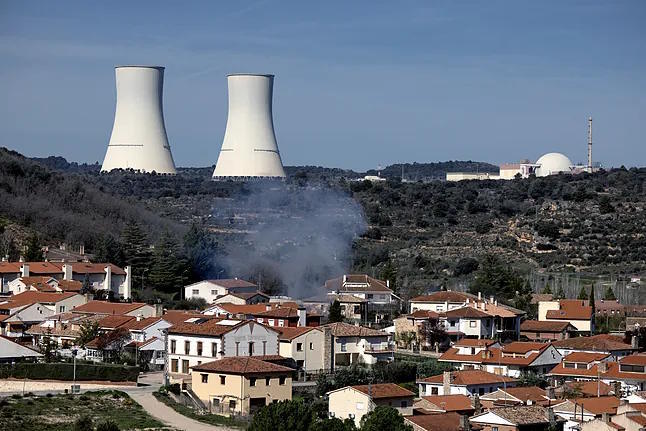Nuclear power plants are not only essential today to ensure electricity supply and contribute to energy sovereignty, but they also represent an economic asset whose dismantling will condemn the areas hosting these plants to an uncertain future. While the Government of Spain continues to move towards the nuclear blackout, having authorized last week the contracting process to deactivate Almaraz, the thousands of people who will be immediately affected are facing a scenario of almost certain ruin for their surroundings. The plant in Cáceres will be the first of the five nuclear power plants operating in Spain to be closed, in a progressive plan that is expected to conclude in 2035, when the one in Trillo, in Guadalajara, will be closed, after Ascó and Vandellós in Tarragona, and Cofrentes in Valencia. As reported today in our Spotlight, in all these locations, regardless of the political affiliation of their leaders, the suppression of a energy source that is gaining more support in Europe is causing distress.
Brussels, which has considered nuclear power as a "green" option since July 2022, recently launched a consultation to determine how much and how to invest in the atomic industry, seen in the sector as a bet on the nuclear resurgence in the continent, contrasting with the Spanish Government's persistence. It is noteworthy that, as First Vice President and Commissioner for Competition, Teresa Ribera is one of the direct responsible for this policy, which has forced her to make a 180-degree turn from the anti-nuclear position she held in the Spanish Government. Companies operating with nuclear energy in Spain have already warned of the risks of dispensing with this source for both supply and energy costs, while the uncertainty grows for those who depend directly or indirectly on the plants and time is running out to extend the life of the reactors, as fuel purchase and personnel training require years of anticipation.
The timeline is particularly pressing for Almaraz, which would stop operating from 2027, but the concern is also high in Valencia and Tarragona, a province where over 80% of the generated energy is nuclear, highlighting the importance of this option, representing 20% of the Spanish energy mix. It is understood that mayors from diverse political backgrounds such as the PP, Junts, or the PSOE, as well as various civil platforms, are fighting to reverse the plans that the Government initiated in 2019, in a very different context, prior to the invasion of Ukraine. This is also one of the demands that the popular party has presented to the Government to support Pedro Sánchez's anti-tariff plan. The economic, political, and energy impact of nuclear power, of which Europe is aware, requires abandoning dogmatism towards an energy source that does not contribute to climate change and is essential for our energy market.
